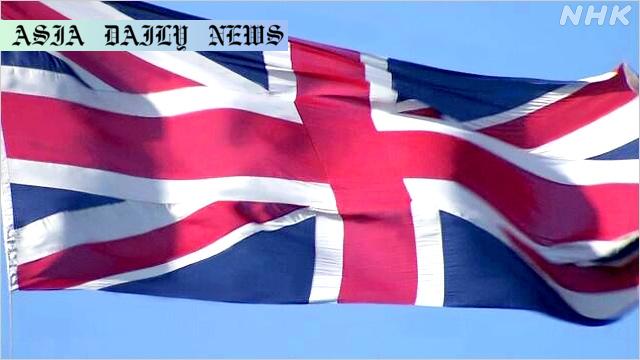Export Ban: The UK bans the export of video game controllers and crucial tech to Russia to cripple its military capabilities.
- The UK bans video game controller exports to Russia.
- Over 150 restrictions aim to weaken Russia’s energy and military sectors.
- Drones piloted with game controllers threaten Ukraine.
- PM Keir Starmer condemns Russian missile and drone attacks.

Introduction to the Export Ban
The British government has implemented a sweeping ban on exporting over 150 items, including video game controllers, to Russia. This ban comes as a part of a larger set of sanctions aimed at pressurizing Russia to halt its ongoing invasion of Ukraine. The decision reinforces the UK’s firm stance against Russia’s aggressive military tactics and highlights Britain’s determination to disrupt critical supplies that strengthen Moscow’s war efforts.
The prohibition on exporting video game controllers is particularly noteworthy as these devices are reportedly being repurposed by Russian forces to control drones used in the ongoing conflict. By curbing the availability of such technology, the UK hopes to stymie Russia’s unconventional yet effective strategies on the battlefield. This is part of a broader initiative to undermine Russia’s capacity to sustain its invasion and endanger Ukraine.
Impact on Russia’s Military and Energy Sectors
In addition to targeting military equipment, the UK’s measures extend to a ban on software vital for Russia’s exploration of new oil and gas reserves. Given that Russia’s economy heavily relies on energy exports, this embargo could severely hinder its economic stability. By cutting off access to these crucial resources, the UK aims to deliver a significant blow to the foundations of Russia’s economy and its ability to fund prolonged military campaigns.
The restrictions also encompass a diverse range of other goods, including chemicals, high-end electronics, advanced machinery, and essential metals. Together, these measures are expected to constrict Russia’s supply chains and degrade its ability to sustain prolonged warfare. As sanctions tighten, the ripple effects will likely challenge both the Russian government and industries dependent on imported technical resources.
Prime Minister’s Comments and the Broader Message
Prime Minister Keir Starmer has strongly condemned the recent missile and drone attacks orchestrated by Russia in Ukraine. He described the violent actions as “just awful” and a stark reminder of who the true aggressor is in this war. Starmer reinforced his commitment to enforcing stringent measures against Moscow and urged the importance of Russia pursuing an unconditional ceasefire to de-escalate tensions.
The current policy underlines the UK’s solidarity with Ukraine while delivering a clear message to Russia that its actions will not be overlooked without consequence. From missile attacks to economic sanctions, the UK is playing a pivotal role in the broader global initiative to isolate Russia diplomatically and economically. The comprehensive export ban serves as both a symbolic and practical move to reaffirm this stance.
The Road Ahead
As the UK and its allies continue to apply pressure, the effectiveness of these sanctions remains a point of observation. While such actions undoubtedly impact Russia’s economy and military capabilities, the long-term effects largely depend on consistent enforcement and collaboration with international partners. Other nations are also encouraged to implement similar restrictions to ensure the sanctions have a collective global impact.
By emphasizing solidarity with Ukraine and standing firm against Russian aggression, the UK reiterates its commitment to upholding international law. The export ban, alongside sanctions, serves as a crucial reminder of the role that global cooperation plays in addressing complex geopolitical conflicts.



Commentary
Targeting Technology for Military Misuse
The UK is stepping up with strategic precision in its latest sanctions against Russia, proving that even seemingly innocuous items, like video game controllers, can play a pivotal role in warfare. By preventing these controllers from being used to pilot drones, the UK is addressing an unconventional but critical aspect of modern warfare. This move reflects a deep understanding of the complexities of contemporary military strategies and seeks to hinder Russia’s adaptability on the battlefield.
Broader Economic Implications
Beyond the battlefield, the sanctions are a calculated strike on Russia’s economy, particularly its energy sector. Limiting access to software necessary for oil and gas exploration is a bold decision that could have profound economic repercussions for Moscow. The energy sector is a cornerstone of Russia’s economic resilience, and disrupting its advancement could curtail the country’s ability to sustain long-term military engagements.
A Unified Front Against Aggression
It’s heartening to see global powers like the UK not only standing in solidarity with Ukraine but taking active steps to weaken Russia’s offensive capabilities. The sanctions demonstrate the impact of unity in addressing international conflicts. However, these measures also rely on cooperation from other nations to ensure their effectiveness. A global, cohesive strategy is essential to truly curtailing Russia’s aggressive intentions and compelling a move towards diplomatic resolution.
Hope for Peace
While the sanctions are undoubtedly effective in applying pressure, one can only hope that they pave the way for meaningful dialogue and an eventual ceasefire. The world is reminded daily of the human cost of this conflict, and every effort must be made to mitigate suffering and restore peace. The UK’s proactive stance is commendable, but this is just one piece of a larger puzzle that requires collective, sustained efforts for a lasting solution.